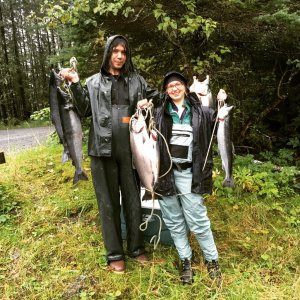Sharing the Gifts from the Watershed
 Shae Bowman, Copper River Watershed Project
Shae Bowman, Copper River Watershed Project
The holiday season is here and the spirit of sharing makes the dark winter months a little brighter. The long winter nights give me plenty of time to experiment with the various wild foods I was able to collect this summer and I keep myself busy getting all my Christmas gifts ready, many of which are gifts that come from the Copper River watershed.
Recently CRWP has talked about being thankful for the ecosystem services that the watershed provides. Ecosystem services occur naturally and are essential to our survival – clean air, clean drinking water, wood to heat and build our homes, and of course, food. As I plan for my Christmas gifts for friends and relatives, I am reminded of how the watershed is also a source of shared resources. I am thankful for all the watershed resources that I plan to give my loved ones who do not live in the Copper River watershed. I have jars of homemade preserves made with blueberries, fireweed, and currants, and my jars of smoked salmon look especially festival with their bright red color! Home-packed foods add a spark of summer essence to every meal and preparing them reminds me of how lucky I am to live in a place with such abundant natural resources.
The resources that the watershed provides are delicious but they are also part of a longstanding tradition that connects people through sharing and trade. Often times when someone in one of our communities harvests an animal, several families come together to help process the meat and share it with the community. Although I am not much of a hunter, I enjoy fishing with my family and raising chickens. Surprisingly, fishing and raising chickens make for convenient hobbies. After I fillet my fish and scrape the backbone to make salmon patties, I feed the carcass to my chickens. When my chickens are pecking at leaves from the salmonberry bushes and eagerly eating the salmon carcasses, they make rich eggs with bright, yummy orange yolks. While I don’t go hunting, I am usually able to trade a couple dozen eggs for some nutritious game meat. I can buy meat, eggs, fish, and berries at the grocery store, but it is a gift in itself to forage for these local watershed resources. It allows me to connect with my watershed community in much the same way that people have been sharing resources between families and communities throughout the watershed for generations.
This Christmas your family might be able to serve some locally harvested game like moose or caribou with a highbush cranberry BBQ sauce, salmon caught with the community fish wheel, or an animal your family raised from local stock. Perhaps, you are able to serve a side dish of foraged greens or mushrooms that you put up several months ago. Personally, I love Christmas cookies and plan to make thumbprint cookies with my own rhubarb-blueberry jam! What traditions does your family look forward to that involve sharing the watershed’s resources?


